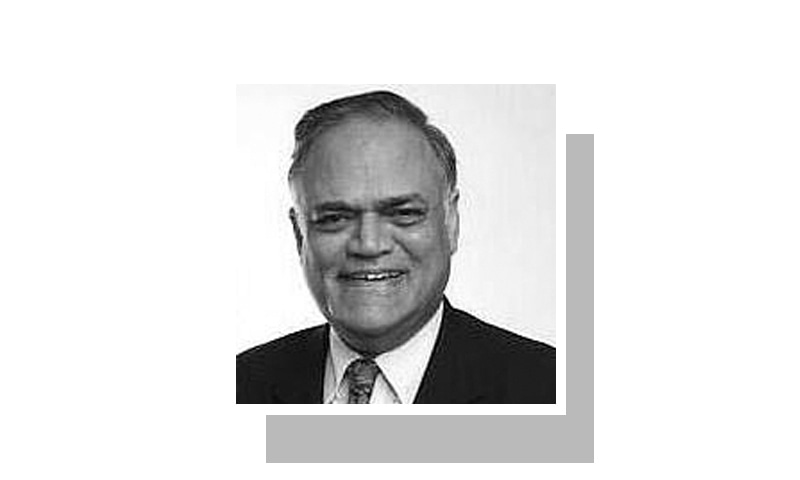CHIEF Justice Jawwad S. Khawaja commenced what will possibly be the shortest term of any Supreme Court chief justice (23 days, ending Sept 9, 2015) with refreshing independence, eg the short order of Aug 19 places a blanket ban on issuance of permits to hunt endangered species. One hopes that similar, prompt scrutiny is applied to the implementation of the recommendations by the Media Commission appointed by the Supreme Court on Jan 15, 2013. Those proposals for change provide for radical reconstruction of the media sector.
By coincidence, then justice Jawwad S. Khawaja was a member of the two-member bench of the court, along with justice Khilji Arif Hussain (who retired in 2014) which constituted the two-member Media Commission chaired by former justice Nasir Aslam Zahid, with this writer as member.
The Media Commission was given nine terms of reference. These comprehensively covered several major aspects of electronic and print media, including the role of media and advertising in elections, the use of secret funds as well as longer-term legal, regulatory and functional facets. It submitted its report in two parts, completing the process by May 31, 2013.
The Media Commission’s proposals require action.
After consultations with 163 individuals from all relevant sectors and reflection, the commission formulated about 40 recommendations. These present precise proposals for fundamental improvements in structural and operational dimensions. They require actions by government, parliament, judiciary (early disposal of stay orders obtained by TV channels which continue to operate in violation of the law and rules), regulatory bodies, media themselves, advertisers, cable operators, citizens. The following four examples are illustrative.
— In view of technology and content convergence (eg smartphones), merger of the two separate ministries of information technology, and of information, broadcasting and national heritage into one entity, accompanied by a similar merger of the two separate regulatory bodies of PTA and Pemra.
— Mode of appointment for the chairman and members of Pemra/any new entity, through bipartisan parliamentary consent and the regulatory body to report directly to parliament.
— Disinvestment by government of shares in Pakistan Broadcasting Corporation, APP and PTV from 100pc to 25pc to offer 75pc to the public through stock exchanges with no single new shareholder allowed to hold more than 2pc, to ensure broad-based public ownership.
— Political parties to place, and to pay for, advertising in media only through ECP or PID to ensure transparency in the amounts spent by parties as there is no limit prescribed for such expenditure, unlike limits specified for individual candidates.
On July 26, 2013, the Federal Ministry of Information, Broadcasting and National Heritage through its then-secretary, submitted a written response to the court. Contrary to the tendency of bureaucracies and governments to resist basic changes that would overturn decades of entrenched patterns, the ministry fully supported 35 out of 40 recommendations.
On Dec 12 and 20, 2013 in response to questions in the National Assembly by Arif Alvi, Minister Pervaiz Rashid reiterated endorsement by the government of most recommendations.
On April 16, 2014, the National Assembly Standing Committee on Information chaired by Marvi Memon and with most members from all major parties, unanimously also endorsed most recommendations. Taking immediate action on one recommendation, the committee constituted a specialist panel to review in six months 64 media-related laws to identify required amendments, or the need for new laws. There was also a pleasantly surprising level of civil society interest in the report.
In sharp contrast to the speedy initial phase of responses, the past 14 months have seen stagnation. Marvi Memon was appointed BISP chief, replaced by another MNA who has shown no sign of follow-up. The report by the panel is awaited eight months past the deadline. There is no news of any move by government to act on recommendations already endorsed.
Two aspects have received attention. But neither is truly substantive. Yet another code of ethics for electronic media, potentially mis-usable, has been announced. Whereas there is no shortage of previous codes, guidelines and norms. Lack of enforcement is the pivotal issue. Another matter is the question of an acting chairman for Pemra whereas the law has no provision for an interim arrangement. Appeal against his removal by the previous fulltime chairman created a legal logjam. But this feature is only the tip of the iceberg.
What is urgently required is for the chief justice to ask for a report from government on the status of implementation of assurances given to the court on July 26, 2013. Here is a golden opportunity to make a decisive, positive difference to shape a media sector that serves the public interest far better than it presently does.
The writer is a former senator and federal minister. He served as member of the Media Commission.
Published in Dawn, August 26th, 2015
On a mobile phone? Get the Dawn Mobile App: Apple Store | Google Play











































